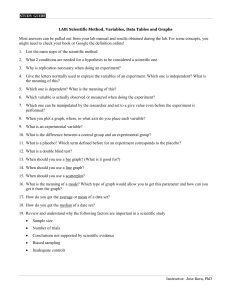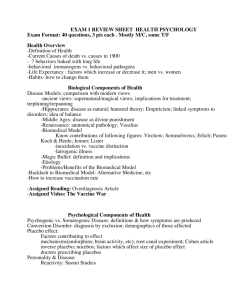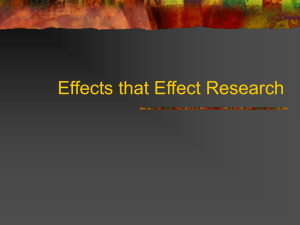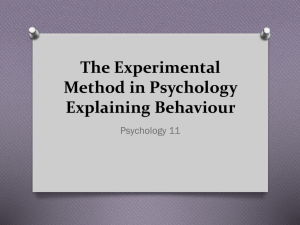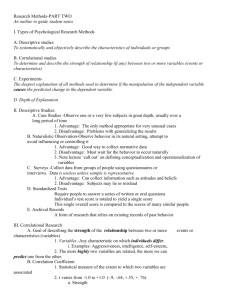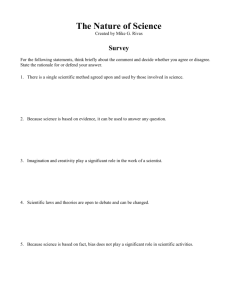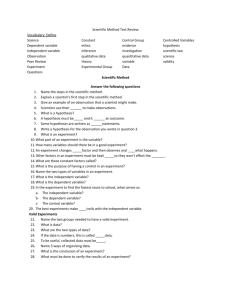Performing Scientific Experiments
advertisement
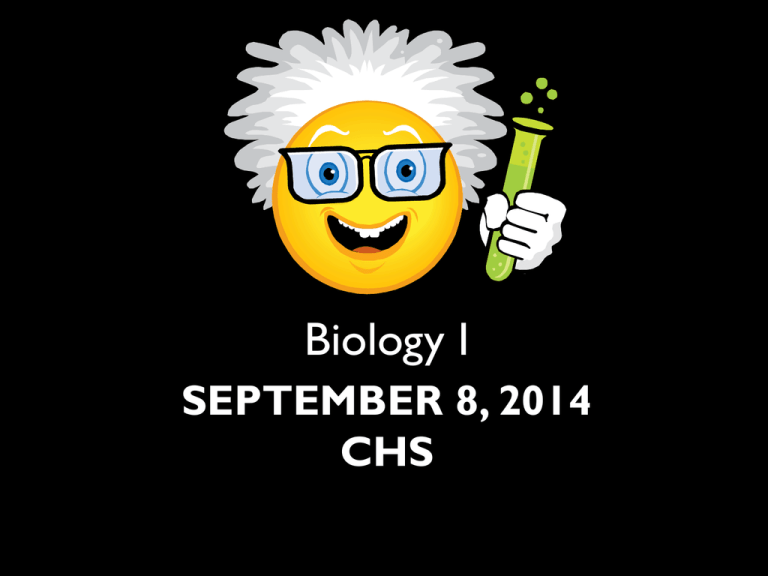
Biology I SEPTEMBER 8, 2014 CHS Objective: 1c: Apply the components of scientific processes and methods in classroom and laboratory investigations (e.g., hypotheses, experimental design, observations, data analyses, interpretations, theory development). (DOK 2) Focus Question: What does an experiment consist of? DO NOW Identify the following vocabulary words below: 1. A set of steps used to test a hypothesis 2. A factor that is changed during an experiment in order to test its effect 3. The variable used to produce an effect 4. The measureable change that occurs because of the independent variable Performing Scientific Experiments Setting Up Experiments Section 2.2 Review Scientific Method Steps Scientific Method Song Words to Know • • • • • • • • • • • • • Experiment Data Quantitative Data Qualitative Data Control Group Experimental Group Bias Unbiased Placebo Constants Variable Independent Variable Dependent Variable What is an experiment? An experiment is set of steps that are performed to collect data which van be used to either prove or to disprove a hypothesis. Questions to be considered when designing and experiment: • • • • • • • • What data should be collected and how? How many groups will be used? How many subjects per group should be used? What will be the control group? Will there be a placebo used? What are the important constants? What is the independent variable? What is the dependent variable? So what is Data? • Data is any information gathered during an experiment. • The two types of data include: a. Quantitative data- measured data such as length, mass, pH, temperature, or time of day. b. Qualitative data- data recorded in most experiments; also known as descriptive data; Examples: color, odor, taste, feel, or any other describe quality What kind of data should a scientist record? • Many kinds of information can be recorded during an experiment. • The only data that should be collected in an experiment is the information that can be used to prove or disprove the hypothesis. • The scientist must decide which information is important to record and which isn’t. How many groups should be used in an experiment? • There are two types of groups: a. Control Group- serves as a standard for comparison b. Experimental Group- Experimental groups receive the same treatment except for the one element being tested (Independent Variable). Example: • A research scientist believes she found a new drug that will cure cancer. The scientist will have a strong belief ( a bias) that this drug works, and her belief (bias) may influence her own experimental results. Bias in an Experiment When doing an experiment, a scientist should be unbiased, or impartial. A bias is a belief or a preference for a specific outcome. Being unbiased means the person does not le his or her personal opinions affect the results. Placebos for the Control Group • A placebo is and inert substance given to the control group that should have no effect on the control group. • The purpose of a placebo is to eliminate biases. • Placebo effect- a phenomenon where people who think they have been given a medication, even if it is a placebo, can sometimes improve a health condition just because they believe that the medicine they receive will help them. Guided Practice • Turn to page 68 in your Mississippi SATP2 Review Guide and work questions 1-6. Independent Practice: Now work questions 1-6 on page 69. Write the answers on the scantrons provided. Don’t forget to write your names on your scantrons. Turn in on my desk when you are done.
